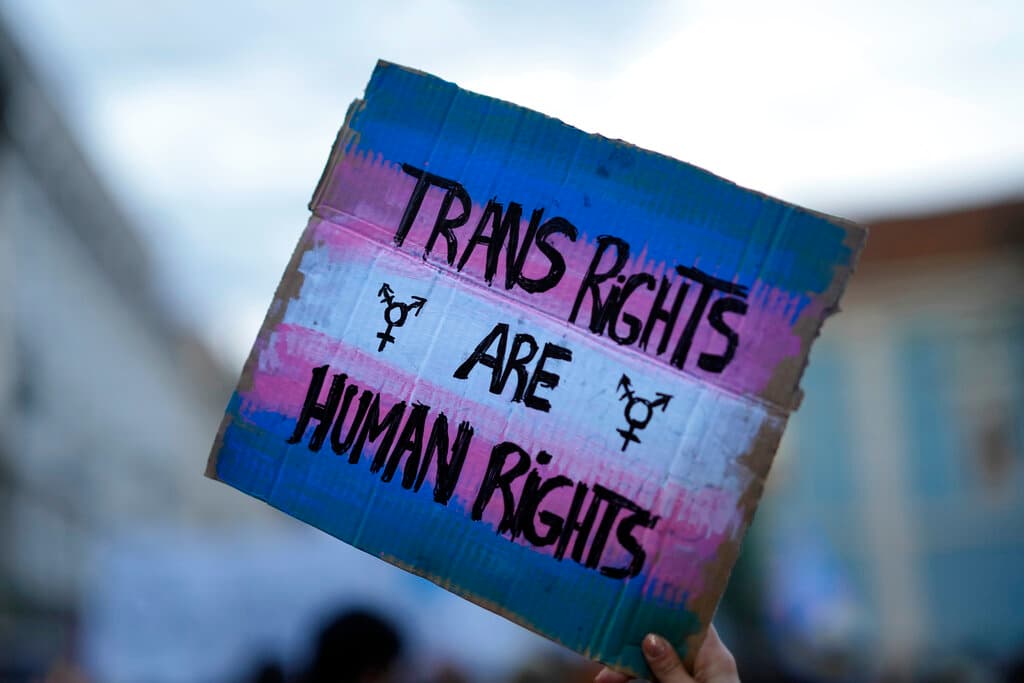States Sue Biden Administration Over New Gender Identity Guidance Holding Employers Liable for Pronouns, Bathrooms
‘This end-run around our constitutional institutions misuses federal power to eliminate women’s private spaces and punish the use of biologically-accurate pronouns,’ Tennessee’s attorney general says.

More than a dozen states are suing the Biden administration over new guidance expanding workplace anti-discrimination laws to cover gender identity.
Under new Equal Employment Opportunity Commission guidance, “an employer may be liable under Title VII if they or another employee use a name or pronoun inconsistent with an employee’s preferred gender identity,” Tennessee’s attorney general, Jonathan Skrmetti, who is leading the coalition of 18 states in the lawsuit, said, adding that employers could also be liable for restricting a bathroom or other single-sex facility like a locker room based on biological sex rather than a person’s gender identity.
“Employers also may be liable if a customer or other non-employee fails to use an employee’s preferred pronouns or refuses to share a restroom with someone of the opposite sex,” a statement announcing the lawsuit read.
Virginia, Georgia, Ohio, South Carolina, and Indiana are among the slew of states joining Tennessee in the challenge to the new guidelines.
“In America, the Constitution gives the power to make laws to the people’s elected representatives, not to unaccountable commissioners, and this EEOC guidance is an attack on our constitutional separation of powers,” Mr. Skrmetti said. “This end-run around our constitutional institutions misuses federal power to eliminate women’s private spaces and punish the use of biologically-accurate pronouns, all at the expense of Tennessee employers.”
The EEOC cites the Supreme Court’s decision in Bostock v. Clayton County as a “notable” change in the legal understanding of workplace harassment since the agency last issued rules on the topic.
“But Bostock was a narrow decision. The Court held only that terminating an employee ‘simply for being homosexual or transgender’ constitutes discrimination ‘because of . . . sex’ under Title VII,” the states’ complaint notes. “The Court expressly declined to ‘prejudge’ issues like ‘bathrooms, locker rooms, and dress codes’ under Title VII’s anti-discrimination provision.”
The complaint also argues that the EEOC’s guidance tramples over federalism, as the unelected regulators don’t have the “authority to resolve these highly controversial and localized issues, which are properly reserved for Congress and the States.”
When announcing the guidance in April, the EEOC said the guidance would help employees understand their rights in the workplace under Title VII, which was enacted to protect employees from workplace discrimination.
“As we commemorate this year’s 60th anniversary of the Civil Rights Act of 1964, the guidance will help raise awareness about the serious problem of harassment in employment and the law’s protections for those who experience it,” the agency’s chairwoman, Charlotte Burrows, said in a statement.

